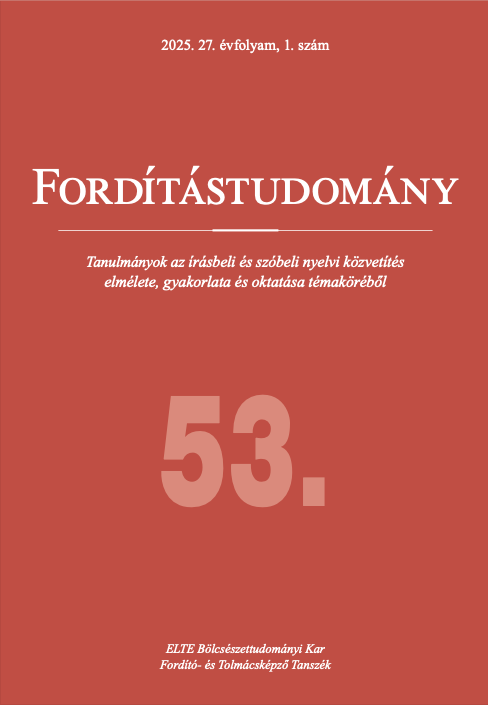The Professional and Academic Background of Language Mediators
Abstract
With the spread of translation technology and AI-based tools, the dilemma has once again intensified: does translation practice need the theories and research findings of translation studies, or not (Levý 1965, Chesterman & Wagner 2002, Heltai 2023). Torres-Simón and Pym (2016) point out that while the traditional dichotomy lies in the fundamental opposition between “practice” and “theory,” the latter inherently includes research and the training that underpins professional work. In 2015, the European Society for Translation Studies (EST) conducted an on- line survey to determine whether researchers in translation studies have practical experience in language mediation (Torres-Simón and Pym 2016). The findings of this research revealed that most translation scholars are also practicing professionals. However, the study did not address the question what professional language media- tors think about the role of translation theories and research, and whether they find them useful from the perspective of industry practice. Inspired by EST’s research, we conducted a similar survey in Hungary. However, instead of focusing on translation scholars, we targeted practising translators and interpreters who are actively working in the translation market. A total of 178 participants completed the survey questionnaire. Our aim was twofold: first, to gather information about the professional background, education, and work experience of language mediators., second, to explore their attitudes and opinions regarding the usefulness of translation rese- arch and theory. Our findings show that most professional translators and interpreters hold a postgraduate degree in language mediation and consider translation and interpreting as their primary occupation. Furthermore, contrary to our initial expectations, the responses revealed that practicing professionals value the connection between translation studies and industry practice. They find translation research useful, as its findings can help them perform their tasks more efficiently, based on informed and conscious decisions. They also view translation and interpreting rese- arch as playing a key role in tracking and exploring ongoing changes in the industry, and in addressing pressing issues arising from the digital transformation.
Copyright (c) 2025 Judit Olgyay-Fekete, Edina Robin

This work is licensed under a Creative Commons Attribution-NonCommercial 4.0 International License.











1.png)
